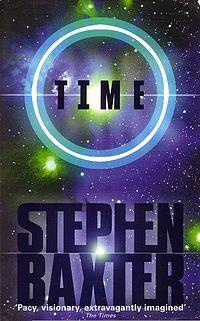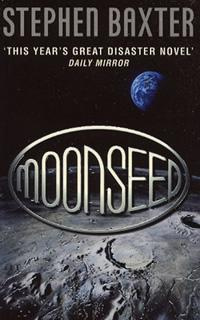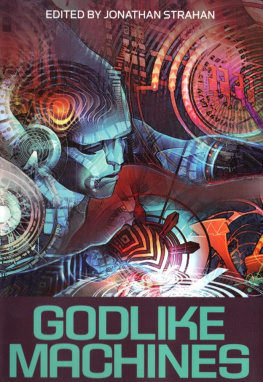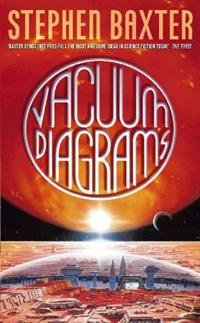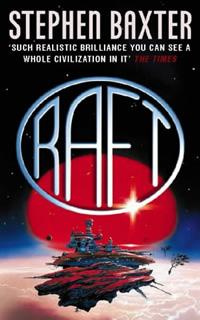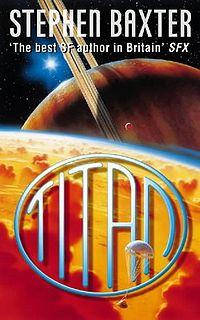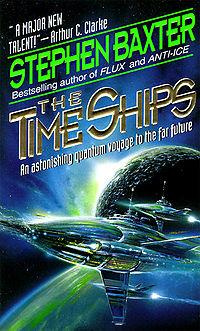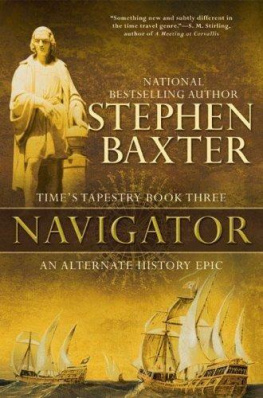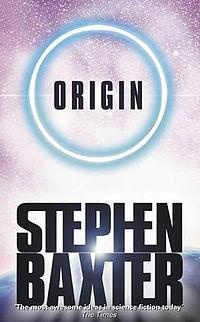Annotation
Time is set on Earth, the inner part of the Solar System and various other universes onwards from the 21st century. The novel covers a wide range of topics, including the Doomsday argument, Fermi paradox, genetic engineering, and humanity's extinction.
The book begins at the end of space and time, when the last descendants of humanity face an infinite but pointless existence. Due to proton decay the physical universe has collapsed, but some form of intelligence has survived by embedding itself into a lossless computing substrate where it can theoretically survive indefinitely. However, since there will never be new input, eventually all possible thoughts will be exhausted. Some portion of this intelligence decides that this should not have been the ultimate fate of the universe, and takes action to change the past, centering around the early 21st century. The changes come in several forms, including a message to Reid Malenfant, the appearance of super-intelligent children around the world, and the discovery of a mysterious gateway on asteroid 3753 Cruithne.
Manifold: Time
by Stephen Baxter
To two space cadets:
My nephew, James Baxter
Kent Joosten, NASA
Reid Malenfant:
You know me. And you know I'm a space cadet.
You know I've campaigned for, among other things, private mining expeditions to the asteroids. In fact, in the past I've tried to get you to pay for such things. I've bored you with that often enough already, right?
So tonight I want to look a little farther out. Tonight I want to tell you why I care so much about this issue that I devoted my life toil.
The world isn't big enough any more. You don't need me to stand here and tell you that. We could all choke to death, be extinct in a hundred years.
Or we could be on our way to populating the Galaxy.
Yes, the Galaxy. Want me to tell you how?
Turns out it's all a question of economics.
Let's say we set out to the stars. We might use ion rockets, solar sails, gravity assists. It doesn't matter.
We'll probably start as we have in the Solar System, with automated probes. Humans may follow. One percent of the helium-3 fusion fuel available from the planet Uranus, for example, would be enough to send a giant interstellar ark, each ark containing a billion people, to every star in the Galaxy. But it may be cheaper for the probes to manufacture humans in situ, using cell synthesis and artificial womb technology.
The first wave will be slow, no faster than we can afford. It doesn 't matter. Not in the long term.
When the probe reaches a new system, it phones home, and starts to build.
Here is the heart of the strategy. A target system, we assume, is uninhabited. We can therefore anticipate massive exploitation of the system's resources, without restraint, by the probe. Such resources are useless for any other purpose, and are therefore economically free to us.
I thought you'd enjoy that line. There's nothing an entrepreneur likes more than the sound of the wordfree.
More probes will be built and launched from each of the first wave of target stars. The probes will reach new targets; and again, more probes will be spawned, and fired onward. The volume covered by the probes will grow rapidly, like the expansion of gas into a vacuum.
Our ships will spread along the spiral arm, along lanes rich with stars, farming the Galaxy for humankind.
Once started, the process will be self-directing, self-financing. It would take, the double-domes think, ten to a hundred million years for the colonization of the Galaxy to be completed in this manner. But we must invest merely in the cost of the initial generation of probes.
Thus the cost of colonizing the Galaxy will be less, in real terms, than that of our Apollo program of fifty years ago.
This vision isn't mine alone. It isn't original. The rocket pioneer Robert Goddard wrote an essay in 1918 -- ninety-two years ago -- called The Ultimate Migration, in which he imagined space arks built from asteroid materials carrying our far-future descendants away from the death of the sun. The engineering detail has changed; the essence of the vision hasn't.
We can do this. If we succeed, we will live forever.
The alternative is extinction.
And, people, when we're gone, we're gone.
As far as we can see we're alone, in an indifferent universe. We see no sign of intelligence anywhere away from Earth. We may be the first. Perhaps we're the last. It took so long for the Solar System to evolve intelligence it seems unlikely there will be others, ever.
If we fail, then the failure is for all time. If we die, mind and consciousness and soul die with us: hope and dreams and love, everything that makes us human. There will be nobody even to mourn us.
To be the first is an awesome responsibility. It's a responsibility we must grasp.
I am offering you a practical route to an infinite future for humankind, a future of unlimited potential. Someday, you know it, I'll come back to you again for money: seedcorn money, that's all, so we can take a first step -- self-financing even in the medium term -- beyond the bounds of Earth. But I want you to see why I'll be doing that. Why I must.
We can do this. We will do this. We're on our own. It's up to us.
This is just the beginning. Join me.
Thank you.
Michael:
This is what I have learned, Malenfant. This is how it is, how it was, how it came to be.
In the afterglow of the Big Bang, humans spread in waves across the universe, sprawling and brawling and breeding and dying and evolving. There were wars, there was love, there was life and death. Minds flowed together in great rivers of consciousness, or shattered in sparkling droplets. There was immortality to be had, of a sort, a continuity of identity through replication and confluence across billions upon billions of years.
Everywhere they found life.
Nowhere did they find mind -- save what they brought with them or created -- no other against which human advancement could be tested.
With time, the stars died like candles. But humans fed on bloated gravitational fat, and achieved a power undreamed of in earlier ages.
They learned of other universes from which theirs had evolved. Those earlier, simpler realities too were empty of mind, a branching tree of emptiness reaching deep into the hyperpast.
It is impossible to understand what minds of that age -- the peak of humankind, a species hundreds of billions of times older than humankind -- were like. They did not seek to acquire, not to breed, not even to learn. They had nothing in common with us, their ancestors of the afterglow.
Nothing but the will to survive. And even that was to be denied them by time.
The universe aged: indifferent, harsh, hostile, and ultimately lethal.
There was despair and loneliness.
There was an age of war, an obliteration of trillion-year memories, a bonfire of identity. There was an age of suicide, as the finest of humanity chose self-destruction against further purposeless time and struggle.
The great rivers of mind guttered and dried.
But some persisted: just a tributary, the stubborn, still unwilling to yield to the darkness, to accept the increasing confines of a universe growing inexorably old.
And, at last, they realized that this was wrong. It wasn't supposed to have been like this.
Burning the last of the universe's resources, the final down-streamers -- dogged, all but insane -- reached to the deepest past. And -- oh.

